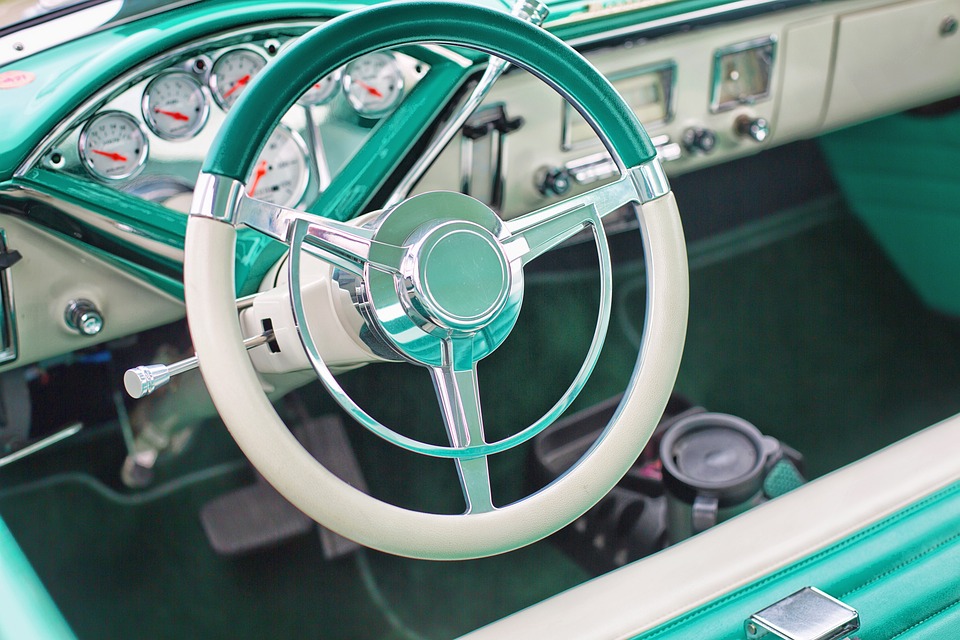When it comes to keeping your Honda Ridgeline running smoothly and efficiently, understanding its maintenance needs is critical. This rugged yet refined pickup truck, known for its strong performance and versatility, demands a certain level of care to uphold its standards of reliability and comfort. In this article, you will find an all-encompassing guide that delves into everything you need to know about Honda Ridgeline maintenance. From routine checks to more intricate servicing details, we promise to provide you with all the necessary insights that ensure your vehicle stays in top condition. Whether you’re a new Ridgeline owner or have been enjoying its capabilities for years, this guide is designed to help you navigate the intricacies of car maintenance with ease and confidence.
For over a decade since 2013, I have immersed myself in the automotive maintenance field, specializing in the Honda Ridgeline among other vehicles. My experience has not only deepened my understanding but also sharpened my expertise, allowing me to offer tailored advice that addresses the unique needs of Ridgeline owners. In my opinion, every vehicle has its distinct characteristics and maintenance requirements, and the Honda Ridgeline is no exception. Drawing from my extensive experience and continuous learning in this ever-evolving field, I feel confident in providing you with comprehensive and reliable information on maintaining your Ridgeline. Through this article, my goal is to share with you the insights and tips that I’ve gathered over the years to help ensure that your Honda Ridgeline remains your reliable companion on every journey.
Honda Ridgeline Maintenance
## Honda Ridgeline Maintenance: Essential Tips for Longevity
### Routine Oil Changes
Embracing the importance of routine oil changes is pivotal in ensuring the longevity of your Honda Ridgeline. This procedure is not merely a recommendation but a necessity to guarantee that your vehicle operates at its peak performance. Over time, oil undergoes thermal breakdown due to high temperatures, losing its lubricating properties and the ability to absorb heat. Regular oil swaps are instrumental in maintaining engine health, preventing wear on its vital components.
Moreover, adhering to the manufacturer’s recommended oil type and change interval is quintessential. Each vehicle has unique needs that, when addressed properly, can maximize both efficiency and lifespan. For instance, synthetic oils might be pricier but offer superior protection for engine parts, a worthwhile investment for prolonging your Ridgeline’s road life.
### Tire Maintenance and Rotation
Tire rotation figures as a critical yet often neglected aspect of Honda Ridgeline upkeep. Regular rotation ensures that tires wear evenly, thereby extending their usefulness and providing a stable, smoother ride. Uneven tire wear can cause a slew of issues, from imbalanced handling to increased fuel consumption, both of which strain the vehicle’s overall functionality.
In addition to rotation, maintaining correct tire pressure is imperative. Incorrect tire pressure can lead to decreased mpg ratings, poor handling, and, in extreme cases, tire failure. Checking the tire pressure monthly and adjusting according to the Ridgeline’s specifications can markedly augment safety and performance.
### Timely Brake Inspection
The braking system is your bulwark against road mishaps, making its upkeep non-negotiable. A periodic inspection of the brake pads, rotors, and fluid can unearth potential issues before they burgeon into costly repairs. Brake pads, being the frontline warriors, wear down over time and require replacement to ensure optimal stopping power.
Neglecting such inspections can not only lead to an increased stopping distance but also damage the rotors, necessitating a more expensive fix. Listening for any unusual noises when braking and observing the feel of the brake pedal can offer early indicators of wear.
### Battery Care
The battery, the silent sentry of your Honda Ridgeline, demands regular checks to ensure its reliability. Terminal corrosion and loose connections are common ailments that can impede the electrical system’s performance. A simple visual inspection can reveal these issues, allowing for timely mitigation.
Moreover, understanding that batteries have a lifespan typically ranging from three to five years aids in anticipating replacement needs. This foresight can prevent unexpected failures, keeping your Ridgeline ready for ignition at all times.
### Fluid Checks and Replacements
Fluids are the lifeblood of your Honda Ridgeline, each serving a crucial role in the smooth operation of different systems. Beyond engine oil, transmission fluid, coolant, and brake fluid require regular examination to ensure they are at the correct levels and free of contamination.
Degraded fluids can significantly impact vehicle performance and longevity. For example, old transmission fluid can lead to gear shifting issues, while insufficient coolant levels can cause overheating. Establishing a routine for checking and replacing these fluids can substantially enhance your Ridgeline’s health.
### Cleanliness Inside and Out
The aesthetic appeal of your Honda Ridgeline mirrors its mechanical integrity. Regular washing and waxing protect the exterior from the elements, especially in regions prone to rust from salted roads. Interior cleanliness can also not be overstated, as accumulated dirt and debris can wear down upholstery and interior surfaces over time.
Further, a clean vehicle can spot potential problems more readily, such as oil leaks or rust, ensuring they are addressed before escalating. A pristine Ridgeline not only takes pride in appearance but also in performance and resale value.
### Trust in Professionals
Lastly, while DIY maintenance can save money, certain aspects of vehicle care are best left to professionals. With over 10 years of experience since 2013, TruckingCareers.org has witnessed the ramifications of well-intentioned but poorly executed self-maintenance. Complex diagnostics and repairs, requiring specialized tools and knowledge, play a crucial part in extending your Honda Ridgeline’s lifespan.
Utilizing experienced technicians can prevent minor issues from becoming major ones, ensuring that your vehicle remains reliable for years to come. Their expertise also provides peace of mind, knowing that your Ridgeline is in capable hands.
In conclusion, adopting a proactive approach to maintenance and caring can significantly enhance the lifespan and performance of your Honda Ridgeline. Regular attention to these details will ensure that this formidable vehicle remains a durable and reliable companion on all your adventures.
FAQs on Honda Ridgeline Maintenance
### Honda Ridgeline Maintenance FAQs
**Q: How often should I change the oil in my Honda Ridgeline?**
A: Change your oil every 7,500 miles or 12 months, whichever comes first, under normal driving conditions.
**Q: What type of oil should I use in my Honda Ridgeline?**
A: Use full synthetic motor oil, 0W-20 viscosity for most models.
**Q: How often should the tires on my Honda Ridgeline be rotated?**
A: Rotate your tires every 7,500 miles to ensure even wear.
**Q: When should I replace the brake pads on my Honda Ridgeline?**
A: Replace brake pads every 30,000 to 70,000 miles, depending on driving habits and conditions.
**Q: How frequently does the transmission fluid need to be changed?**
A: Change transmission fluid every 60,000 miles for optimal performance.
**Q: When should the air filter in my Honda Ridgeline be replaced?**
A: Replace the air filter every 15,000 to 30,000 miles, depending on environmental conditions.
**Q: What is the timing belt replacement interval for the Honda Ridgeline?**
A: Replace the timing belt at 105,000 miles or every 7 years, whichever comes first.
**Q: How often should I have the coolant fluid replaced?**
A: Replace the coolant at 60,000 miles, then every 30,000 miles thereafter.
**Q: When should I replace the spark plugs in my Honda Ridgeline?**
A: Change spark plugs every 100,000 miles unless problems arise sooner.
**Q: Do I need to perform a differential service on my Honda Ridgeline?**
A: Yes, perform differential service every 30,000 miles for optimal drivetrain function.
**Q: How do I know if my Honda Ridgeline needs alignment?**
A: If you notice uneven tire wear, steering pulling to one side, or a crooked steering wheel, it may need alignment.
**Q: How often should I check the battery in my Honda Ridgeline?**
A: Check the battery once a year and replace typically every 3-5 years.
**Q: What should I do if the “Check Engine” light comes on in my Ridgeline?**
A: Address a “Check Engine” light promptly by getting a diagnostic to identify the issue.
**Q: Is it important to follow the Honda Ridgeline maintenance schedule?**
A: Absolutely, following the maintenance schedule is critical for the vehicle’s longevity and performance.




